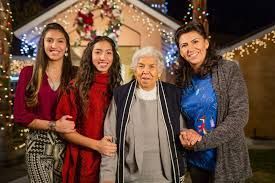Don’t Wait
This is a guest post by Elder Law Attorney Debra Simms.
Many of us tend to procrastinate about making hard decisions. Unfortunately, with estate planning and elder care, this can have dire consequences.
Recently, an 80 year old lady came to see me about doing her Will. She was clear in her mind about who she wanted to leave her money to when she died and who should take care of her finances if she became too ill. And, she knew what kind of care she wanted if she could no longer live alone.
I was hired to do a basic Estate Plan for her – Will, Durable Power of Attorney, Health Care Directive, and Living Will. I prepared the documents and called her to come in to sign. No Answer. Next day, No Answer.
It turns out my client had a stroke and was unlikely to recover. She had no legal documents in place to authorize any of her children to handle her finances or make decisions regarding health care. The children could not agree, and a guardianship case was opened in court while my client remained in the hospital unable to communicate.
This is an all too familiar story in my Elder Law practice.
Why do people procrastinate about these important planning tools? It’s simple:
- No one wants to think about mental incapacity or death.
- No one likes to pay attorney fees.
- No one likes to expose their personal life to another person, even an attorney.
- No one wants to give a child the authority to “put them in a home”.
- Sometimes it’s not easy to decide how to divide your estate.
It’s wise to start your estate planning early. Here are some top reasons:
- The top reason, of course, is my 80 year old client. You might lose your ability to sign documents.
- Like my client, you might lose your ability to communicate your wishes to your family or doctors.
- Keep harmony among family members – my client’s children could not agree what to do – they went to court!
- You might need someone to handle your finances if you cannot.
After watching my client and many others like her, I know how important it is to plan ahead.
all the Law Offices of Debra G. Simms at 386.256.4882 to learn more.
This blog post is not case-specific and is provided only for educational purposes and is not intended to provide specific legal advice. Blog topics may or may not be updated and entries may be out-of-date at the time you view them.



